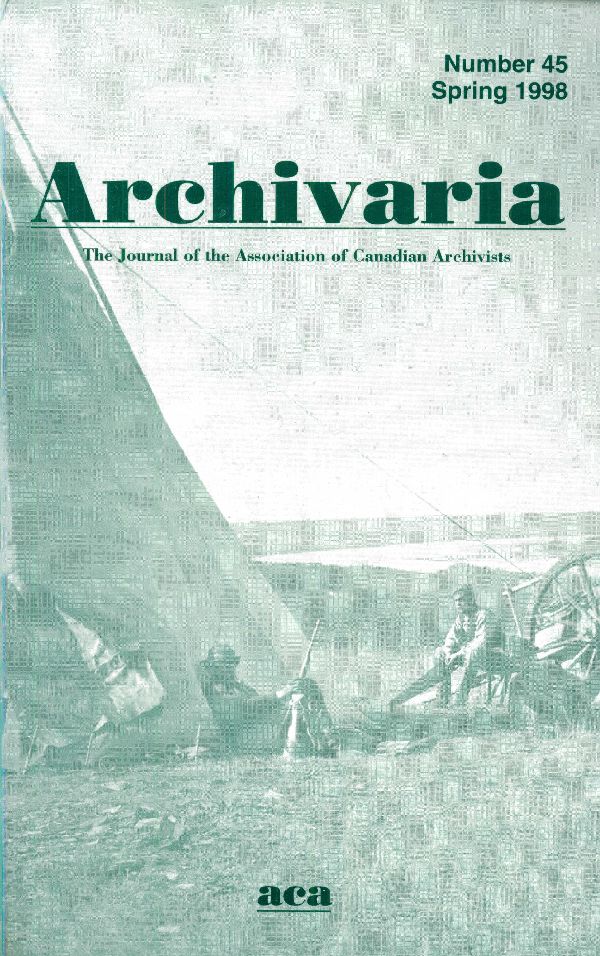"The Surest Proof:" A Utilitarian Approach to Appraisal
Abstract
What follows is an analysis of the role of research use in making appraisal and reappraisal decisions at the series level. Building on the "Minnesota Method" approach to selection and appraisal of modern business records as described in a paper published in The Records of American Business, this article analyses and assesses application of the Minnesota Method's appraisal criteria, using three studies of rates of use of business records by scholars and the general public. Ultimately, the validity of use as an appraisal criteria comes down to the fundamental question: what are archives? If archives are objectively identifiable evidence of business transactions then use is irrelevant as an appraisal consideration. However, if (as Terry Eastwood has said), "archives are social creations for social purposes" that have no validity aside from the value that an institution or society places on them, then use is the only measurement we have of that value (and of the success of archives operations as a whole). After examining the pros and cons of use as an appraisal criterion and the results of the three studies, the author concludes that "use of the archives and the growth of its reputation" is the "surest proof of sound records appraisal."
RÉSUMÉ
L'article qui suit analyse le rôle de l'utilisation à des fins de recherche (valeur d'information) comme critère d'évaluation ou de réévaluation des documents d'archives sur le plan de la série. S'appuyant sur la «méthode Minnesota» en matière de tri et d'évaluation d'archives d'entreprises, telle que décrite dans une communication publiée dans The Records of American Business, l'article analyse et évalue les critères d'évaluation de cette méthode à l'aide de trois études de taux d'utilisation d'archives d'entreprises par des érudits et le grand public. À la limite, la validité de l'utilisation des archives comme critère d'évaluation se résume à la question fondamentale suivante : que sont les archives ? Toutefois, si, comme le dit Terry Eastwood, «les archives sont des créations sociales à des fins sociales» qui n'ont d'autre valeur que celle qu'une institution ou qu'une société leur donne, alors cette utilisation est la seule mesure que nous ayons de cette valeur (et du succès du travail en archives dans son ensemble). Après avoir soupesé le pour et le contre de cette utilisation comme critère d'évaluation ainsi que les résultats des trois études, l'auteur conclut que «l'utilisation des documents d'archives et la croissance de leur réputation» est «l'un des plus sûrs moyens de juger d'une évaluation archivistique judicieuse».
Authors of manuscripts accepted for publication retain copyright in their work. They are required to sign the Agreement on Authors' Rights and Responsibilities that permits Archivaria to publish and disseminate the work in print and electronically. In the same agreement, authors are required to confirm that "the material submitted for publication in Archivaria, both in its paper and electronic versions, including reproductions of other works (e.g. photographs, maps, etc.) does not infringe upon any existing copyright." Authors of manuscripts accepted for publication retain copyright in their work and are able to publish their articles in institutional repositories or elsewhere as long as the piece is posted after its original appearance on archivaria.ca. Any reproduction within one year following the date of this agreement requires the permission of the General Editor.





